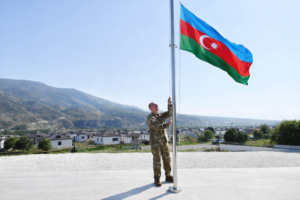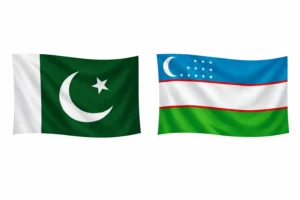Dialogue, Communication, and Sustainable Development

On Wednesday, July 30th, 2025, I had the great honour of delivering a talk on core concepts of dialogue, communication and sustainable development at a youth capacity-building workshop organized by the Iqbal International Institute for Research and Dialogue at the International Islamic University, Islamabad. The workshop gathered students and youth from diverse parts of Pakistan who were eager to engage in discussions on dialogue, communication, and sustainable development. This platform provided not only a space for discourse but an important opportunity to reflect critically on the broader structures that influence sustainable development, particularly in the Global South. The commendable leadership of Mr. Nasir Fareed, director of the Institute, and the intellectual vision of Prof. Dr. Ahmed Saad Alahmed, President of IIUI, must be acknowledged for accelerating such an inclusive environment where the youth could explore complex global issues from local and international perspectives.
During the discussion, one participant asked a question that struck at the very core of the development discourse in Pakistan: “What are the main challenges to sustainable development in Pakistan?” Among the range of responses to this critical question, the most foundational and often overlooked issue is the suppression or dysfunction of dialogue and communication. When dialogue is interrupted and communication is mediated or restricted by dominant power structures, the space for authentic, inclusive, and sustainable development collapses. Dialogue and communication are not simply tools of expression but the lifeblood of any progressive society that seeks to reimagine itself. To understand this better, one must move beyond superficial understandings and explore these concepts within the theoretical framework of historical materialism.
Dialogue, in its true sense, is not merely a conversation or exchange of views. In Marxist theory, dialogue is deeply embedded in the social and material conditions of the people. Historical materialism teaches us that human history is a history of class struggles driven by changing material conditions. Dialogue, therefore, becomes a mechanism through which oppressed classes articulate their conditions and strive to transform their reality. From this lens, Paulo Freire’s concept of dialogical education aligns with Marxist praxis, whereby oppressed groups develop critical consciousness through dialogue and collective reflection, ultimately leading to action.
Likewise, communication is not a neutral process; it is an ideological tool embedded in the power dynamics of any society. Marxist theorist Antonio Gramsci emphasized the role of cultural hegemony, where ruling classes maintain their dominance not only through economic and political power but by controlling communication, education, and culture. Thus, the elite shape the dominant narratives of sustainable development, not to serve the masses, but to justify and perpetuate their control over natural resources, labour, and land. The language of “green growth” or “smart development” often obscures the exploitation and accumulation processes happening under the guise of sustainability.
In the Pakistani context, sustainable development is often framed within international donor models and elite policy circles. These frameworks typically exclude grassroots voices and fail to question structural inequalities. The poor, the working class, and marginalized communities are often cast as “beneficiaries” rather than agents of change. The dialogue is top-down, with communication flowing in one direction—from experts and elites to the masses. There is little room for counter-narratives, dissenting voices, or critical engagement with the realities of environmental degradation, poverty, or gender inequality. This is not accidental, it is systemic.
The ruling elite control the channels of communication, media, academia, policymaking spaces—and frame the national discourse in ways that preserve their interests. Development programs are often imposed without participatory consultation, and resistance is painted as ignorance or opposition to progress. In this context, dialogue is broken and communication is chained. The youth, in such a scenario, are often socialized into accepting these narratives without questioning their origin or beneficiaries.
A Marxist analysis of the political economy of sustainable development reveals that the current models are structured around capitalist accumulation rather than ecological or social justice. The origin of the sustainable development discourse itself, formalized in the 1987 Brundtland Report, was heavily influenced by Northern interests that sought to green capitalism rather than transform its exploitative base. Sustainable development, under capitalism, is often reduced to “sustaining development” rather than sustaining life, ecosystems, and communities.
In countries like Pakistan, development projects often lead to land dispossession, forced displacement, and environmental degradation, disproportionately affecting poor and indigenous communities. Dams, urban expansion, and infrastructural megaprojects are presented as symbols of progress while ignoring the social and ecological costs. The logic of capital—profit maximization—remains intact, while dialogue with affected communities is minimized or completely absent. This is why the question “sustainable development for whom?” is crucial. Who benefits from development, and who bears its burden?
Yet, amid these challenges, the youth have a critical role to play. They are not only the future; they are the present agents of change. The workshop participants exhibited a strong desire to engage, critique, and propose alternatives. Their active involvement is a testament to the power of critical pedagogy and participatory dialogue. Youth must reclaim the spaces of dialogue—through student movements, community forums, digital activism, and independent research. They must challenge the dominant narratives and expose the contradictions within the development discourse.
Moreover, the concept of a shared future and coexistence must become central to any development vision. China’s Global Development Initiative (GDI) offers an alternative framework by emphasizing people-centric development, mutual respect, and south-south cooperation. Unlike Western models that are often conditional and extractive, the GDI prioritizes infrastructure, poverty alleviation, digital transformation, and green development based on mutual benefit and respect for sovereignty. While no model is perfect, the Chinese approach highlights the importance of development that responds to local needs and promotes collective advancement.
In the spirit of internationalism, Pakistan and other countries in the Global South must build coalitions for alternative development paradigms that emphasize social justice, ecological sustainability, and cultural dignity. These coalitions must be rooted in genuine dialogue—where communities, particularly the marginalized, are at the center of decision-making. Communication strategies must be democratized, utilizing popular media, community radios, and indigenous knowledge systems to circulate ideas and counter-narratives.
People-centric solutions are not utopian; they are necessary. These include participatory budgeting, land reforms, community-based resource management, local education reforms, and decentralized planning. Such reforms are only possible when the people are allowed to speak, organize, and act freely. Dialogue and communication, therefore, are not secondary to sustainable development—they are the foundation upon which it must be built.
The youth must also be equipped with critical tools—history, theory, activism, and solidarity—to navigate and transform the development discourse. Institutions like the Iqbal International Institute for Research and Dialogue must continue their role in nurturing critical thinking and building platforms for dialogue that challenge hegemonic narratives. In the end, the struggle for sustainable development is not merely a policy issue; it is a struggle over meaning, power, and life itself.
The chains that bind dialogue and communication must be broken if Pakistan and the Global South are to imagine and realize a truly sustainable future. As Karl Marx once declared, “Philosophers have only interpreted the world, in various ways; the point, however, is to change it.” This change begins with reclaiming our voice, rebuilding our narratives, and reimagining development through the lens of justice, equity, and solidarity.


